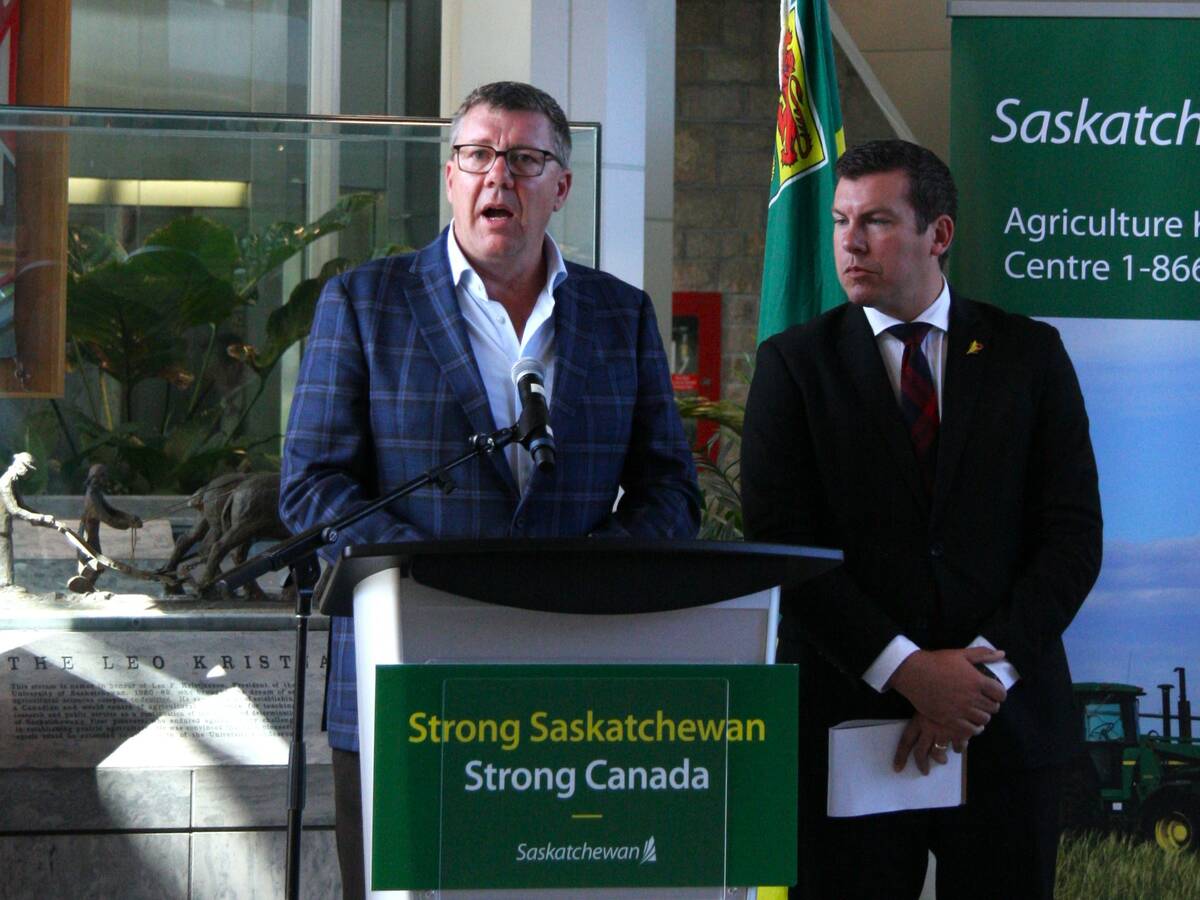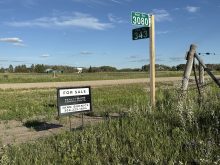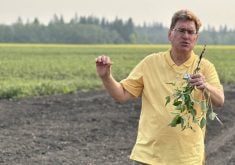From hogs to hemp, Manitoba’s agriculture minister says you won’t catch this province slow off the starting blocks.
Harry Enns said the province will apply to Ottawa to grow 5,000 acres of hemp this year to secure a first-place spot in the new industry that could someday match the returns Manitoba makes on canola.
“We’re going to reintroduce an age-old crop here that could replace the lost sugar beet industry in Manitoba,” he told reporters during Ag Days in Brandon.
And while some in the industry are passing it off as mere hype over hemp, an Ontario company plans to set up a growing, processing, manufacturing and distribution chain.
Read Also

Key actions identified to address canola tariffs
Federal and Saskatchewan governments discuss next steps with industry on Chinese tariffs
Greg Harriot, of Hempola Inc. of Port Severn, Ont., said his company sees Manitoba as leading the country in hemp production and processing.
“Our vision with Hempola is to create an entire infrastructure in the province from growing to primary processing to secondary processing to marketing and distribution.”
He’s already met with a group of local growers and investors near Carman interested in forming a new generation co-op to finance and run a hemp processing facility there.
It would be operated using a cold press to produce hemp oil and an edible meal byproduct, with the possibility of expanding to process wood fibre from the stock.
Distribution deal
The company also hooked up with Vita Health, a Winnipeg health food chain to distribute the products, Harriot said. Hempola sells edible oil and body care products such as massage oil, lip balm and hand cream.
Harriot said the company sees North America as its main export market.
“The U.S. has not even planted its first research crop so the window of opportunity Canada and Manitoba has in that marketplace is fairly significant.”
Delegates to the American Farm Bureau convention recently voted against conducting research into the crop.
Harriot said Hempola’s business is hoping for 2,000 acres to be grown here this year “and that’s just to get things rolling. Long term it could potentially be very vast.”
His company plans to be doing $7 million in hemp product sales in the next three years, Harriot said.
Jack Moes, a new crops specialist with Manitoba Agriculture who’s headed up recent research into growing hemp, said there is another company knocking on Manitoba’s door.
The U.S.-based Consolidated Growers and Processors also plans to establish a Canadian subsidiary in Manitoba, he said.
The company could not be reached for comment, but Moes said their business plan alone is counting on 5,000 acres grown here this year.
“If it can be done that’s great, if they’re genuinely in a position to buy that much.”
Moes said the company sells most of its product in Europe and the U.S.
As far as the controversy around legalizing hemp, a cousin to marijuana, Moes said varieties available to growers will be restricted to those with low THC content, or anything under .3 percent.
Growers will also have to submit samples for testing.
“From what I gather that is so far below what would be seen as being recreationally useful that I don’t think it’s really an issue,” he said.
Enns said hemp processors could be in line for some support from the province.
“They would be open to the same treatment for any development grants that are available, particularly because it’s a new crop.” He also said farmers wouldn’t necessarily be burdened with providing the RCMP the necessary paperwork outlining who’s growing what and where.
“I’m saying I don’t want to put that on the farmers,” he said. “Let my department supply this information to Ottawa.”
















